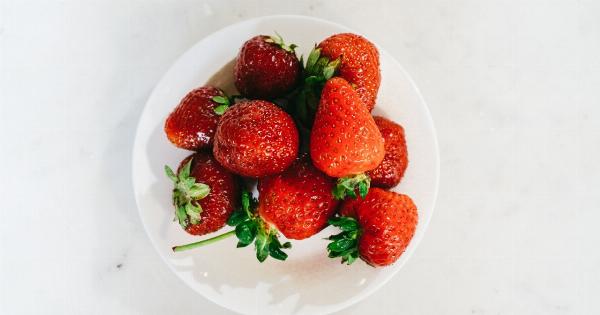Introducing solid foods to your baby is an exciting milestone in their development. It’s a chance for them to explore new tastes and textures and develop their eating skills.
But with so many options available, it can be overwhelming to know where to start. In this article, we will guide you through the best foods to introduce to your baby during their transition to solid foods.
1. Rice Cereal
Rice cereal is often recommended as the first food to introduce to babies. It is a gentle and easily digestible option that helps babies transition from a liquid diet to solids.
Start by mixing a small amount of rice cereal with breast milk or formula to create a smooth, runny consistency. As your baby gets used to swallowing and tolerating this new texture, you can gradually increase the thickness.
2. Pureed Fruits
Once your baby has successfully tried rice cereal, you can begin introducing pureed fruits. Fruits like bananas, apples, pears, and avocados are excellent choices.
These fruits are packed with essential vitamins and minerals, and their smooth texture makes them easy for babies to eat. Make sure to peel and remove any seeds or pits before pureeing the fruits.
3. Pureed Vegetables
Introducing pureed vegetables is another important step in your baby’s solid food journey. Start with mild-tasting vegetables like carrots, sweet potatoes, and squash. Steam or boil the vegetables until they are soft and easily mashable.
Then, puree them with a little water or breast milk until you achieve a smooth consistency. This way, your baby can enjoy the natural flavors and nutrients of vegetables.
4. Baby Oatmeal
Baby oatmeal is a nutritious and versatile food that can be introduced around six months of age. It is easily digestible and provides essential nutrients like iron and fiber. You can mix baby oatmeal with breast milk or formula to create a creamy texture.
As your baby becomes more comfortable with texture, you can add pureed fruits or vegetables to the oatmeal for added flavor.
5. Yogurt
Yogurt is an excellent source of protein, calcium, and probiotics for your baby. Opt for plain, whole-milk yogurt without added sugars or flavors. Greek yogurt is a good choice as it has a higher protein content.
Start with small amounts of yogurt and observe your baby for any signs of allergy or intolerance. You can also mix in pureed fruits to enhance its taste.
6. Soft Cooked Meats
As your baby grows, you can gradually introduce soft cooked meats into their diet. Meats like chicken, beef, and turkey are excellent sources of iron and protein.
Make sure the meats are cooked thoroughly and are tender enough for your baby to mash with their gums or easily swallow. Avoid seasoning the meats with salt, spices, or additives, as they may be too harsh for your baby’s delicate digestive system.
7. Grains and Legumes
Introducing grains and legumes to your baby’s diet will provide them with essential nutrients and fiber. Cooked and mashed grains like quinoa, millet, or rice can be added to their meals.
Similarly, soft-cooked beans and lentils can be mashed or pureed to create a creamy texture. These options give your baby a chance to explore different tastes and textures while promoting healthy digestion.
8. Finger Foods
When your baby is around eight to ten months old and has developed their pincer grasp, you can introduce finger foods. Soft and easily dissolvable finger foods like cooked pasta, small pieces of soft fruits, or well-cooked vegetables are ideal.
This allows your baby to practice self-feeding and develop their fine motor skills while exploring new flavors and textures.
9. Egg Yolks
Egg yolks are highly nutritious and can be introduced to your baby around eight months of age. They are an excellent source of protein, iron, and choline, which is essential for brain development.
Start by boiling an egg, removing the shell, and mashing the yolk with a fork until it becomes smooth. You can mix it with breast milk or formula for a smoother consistency.
10. Cheese
Soft and easily mashable cheeses like cottage cheese or mild cheddar can be introduced to your baby’s diet. Cheese is a good source of calcium and protein.
Make sure to cut it into small, bite-sized pieces that are easy for your baby to handle and swallow. However, avoid giving your baby hard or crumbly cheeses, as they may pose a choking hazard.
In Conclusion
Introducing solid foods to your baby is an exciting journey of exploration and taste development. Start with gentle and easily digestible options like rice cereal and progress to pureed fruits and vegetables.
As your baby grows, you can gradually introduce more textures, finger foods, and a variety of nutritious foods like meats, grains, and dairy products. Remember to introduce one new food at a time and watch for any signs of allergies or intolerances. Enjoy this milestone and watch your baby grow into a confident and adventurous eater!.





























